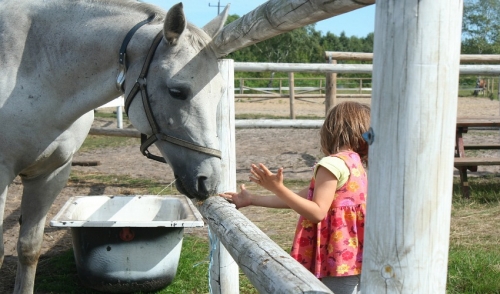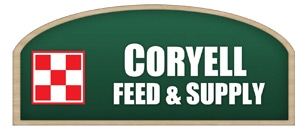{article.name}
Choosing The Right Feed For Your Equine

- Share this:
- Share on Facebook
- Pin on Pinterest
- Tweet on Twitter
Choosing the right feed for your horse can be a difficult task sometimes. When it comes to feeding your horse, there is no one size fits all method. Sure you can choose a blend of food that will provide your equine with what they need or you can take the extra step to make sure your horses get the best nutrition possible for their bodies. When searching for the right feed, consider the age of your horse, what is physiological stage or use of the horse, are there any relevant medical issues, what is the current physical condition of the horse, and what type of forage do you have available.
First, the age of your horse will determine the appropriate nutrient requirements for your horse. If the horse is young from birth to two years old it will require nutritional needs that are driven by growth. Most commercial or developmental feeds have a protein content of 14-16 percent. Young horses also require a feed that contains more nutrients including vitamins and minerals to support growth. If the horse is older or considered a ‘senior’ then the same diet will not help maintain a healthy body condition. Older horses require a feed that is easy to chew, highly digestible, and high in fiber and nutrients. These types of feeds are usually pelleted and sometimes soaked in water to create a mix that is designed for easy consumption by the horse.
Another thing to consider is the physiological stage of the horse. For example, consider whether the horse is a stallion, pregnant, or growing. Each physiological stage requires a specific diet consisting of specific nutritional requirements. Also, take into account the level of activity of that specific horse. If a horse is used for several hours of work or practice, the feeding requirements may need to be adjusted. Be sure to choose a feed that is intended to accommodate the nutritional needs required for the particular physiological state of your horse.
If your horse has any relevant medical conditions such as allergies, obesity, insulin resistance, consult with an equine nutritionist to guarantee that your horse is getting what it needs to perform daily. In addition, watch the body weight and physical condition of your horse closely. Use Body Condition Scoring, a useful tool for managing horses and making the right feed choice. The scoring systems uses a numeric scale between 1 to 9 where 1 is very thin and 9 is obese. Depending on the activity level of your horse, this number can change frequently if the right nutrition is not provided. Horses are just like athletes in a sense that they require certain nutritional needs at certain times to increase function and performance.
Finally, always have high quality forage available. Forage is the foundation of all equine nutrition programs. Forage will help you as an owner compensate for whatever nutrients that may be missing from the feed. It’s the last piece of supplementation that your equine needs to thrive. Therefore, as you wonder through the aisles trying to choose the right feed for your equine, consider these criteria and you can’t go wrong. You don’t have to be perfect, but pay attention and give your horse the nutrition it deserves.
Special Offers
We are constantly adding new specials to our site. Be sure to check back often!


Comments